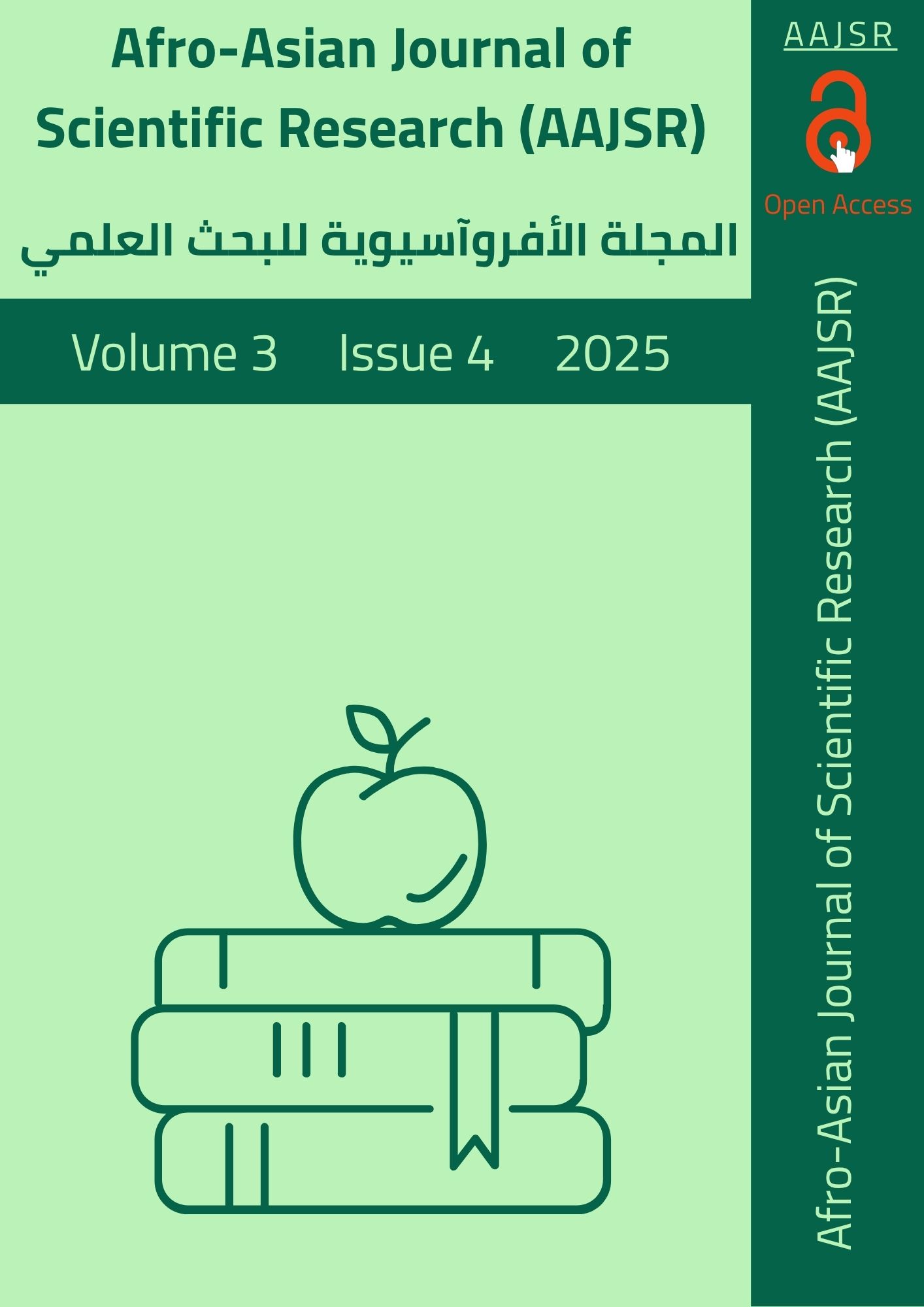Monoethanolamine Oleate Sclerotherapy versus Surgical Excision in the Treatment of Oral Pyogenic Granuloma: A Randomized Clinical Trial
الكلمات المفتاحية:
Monoethanolamine oleate، Sclerotherapy، Surgical Excision، Oral Pyogenic Granulomaالملخص
The objective of this study was to assess the therapeutic efficacy and patient tolerability of monoethanolamine oleate (EO) sclerotherapy as a minimally invasive alternative to conventional surgical excision for the management of oral pyogenic granuloma (PG). In this randomized clinical trial, fourteen patients with clinically confirmed oral PG were allocated into two equal groups. Group I (n = 7) received intralesional injections of 1.25% EO, whereas Group II (n = 7) underwent standard surgical excision. The primary outcome measure was complete lesion resolution at a two-week evaluation. Secondary outcomes included postoperative pain, quantified using a Visual Analogue Scale (VAS) over a 14-day period. Complete lesion resolution was observed in five of the seven patients (71.4%) treated with EO sclerotherapy, with four of these cases achieving resolution after a single injection. Compared with the surgical group, patients in the EO cohort demonstrated significantly lower postoperative pain scores (p < 0.05) at all measured intervals (days 2, 4, and 6). No adverse events or lesion recurrences were recorded during the follow-up period. Monoethanolamine oleate sclerotherapy represents a straightforward, efficacious, and well-tolerated treatment modality for oral pyogenic granuloma, offering a viable non-surgical alternative to conventional excision.







